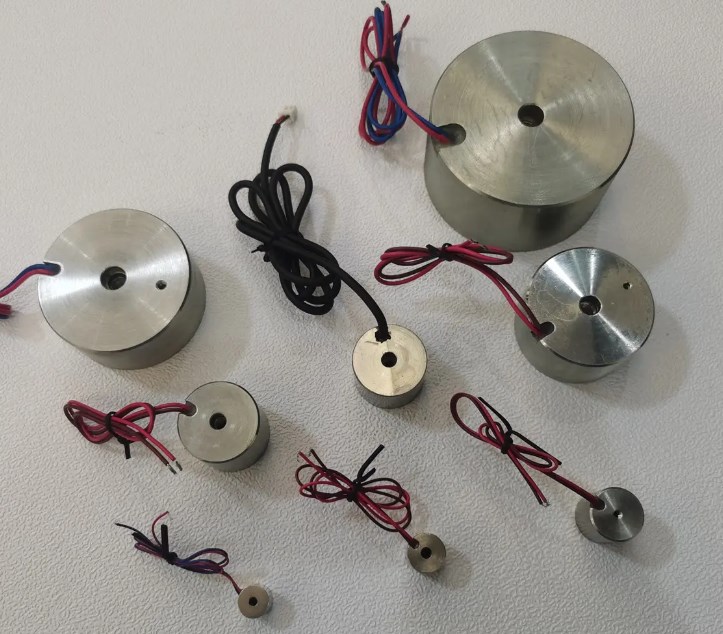How Long Will a Neodymium Magnet Last?
Neodymium magnets are known for their strong magnetic properties, but their longevity can vary depending on several factors. Here are some key considerations that can affect how long a neodymium magnet will last:
- Environmental Conditions: Neodymium magnets are sensitive to temperature and humidity. Exposure to high temperatures can demagnetize them, causing a loss in their magnetic strength. Humidity can also lead to corrosion over time. Storing and using neodymium magnets in a stable, moderate-temperature, and low-humidity environment can help prolong their lifespan.
- Use and Handling: Neodymium magnets are brittle and can shatter or break upon impact. Avoid subjecting them to mechanical stress, such as dropping or hitting, as this can weaken or damage the magnet. Proper handling and use can extend their life.
- Magnetic Properties: Neodymium magnets can naturally lose some of their magnetic strength over time due to a phenomenon called magnetic aging. This is a slow and gradual process and is influenced by factors such as temperature and external magnetic fields.
- Coating and Protection: Many neodymium magnets are coated with a protective layer to prevent corrosion. This coating can wear off over time, so it's essential to protect the magnets from exposure to moisture and corrosive substances to extend their lifespan.
- Magnet Grade: The quality and composition of neodymium magnets vary by grade. Higher-grade neodymium magnets are more stable and have better resistance to demagnetization over time. Choosing a higher-grade magnet can lead to a longer-lasting magnet.
In summary, the longevity of a neodymium magnet depends on various factors, including environmental conditions, usage, handling, and the quality of the magnet. With proper care and protection, neodymium magnets can last for many years or even decades, retaining a significant portion of their original magnetic strength.
Neodymium Magnet Description
Many people are relatively new to neodymium magnets, but when it comes to strong magnets, I believe most of us have heard of them. In fact, the strong magnet is another name for neodymium magnets. This kind of magnet is very common in the modern industry and has a super-strong magnetic force. Also, the neodymium magnets are usually very small and can be used in a wide variety of spaces and working environments. Then many people may have such a question: since neodymium magnets can be applied in different working environments, will it be demagnetized like other ordinary magnets? How long will a neodymium magnet last?
 How long will a neodymium magnet last?
How long will a neodymium magnet last?
We all know that magnets are very widely used in our daily lives, and the demand for magnets in the industry is also very large. However, there are magnets of various materials on the market today, and it is not easy to for one choose a magnet that suits him/her best. When choosing magnets, many people do not pay enough attention to the production process or types of magnets. As a result, problems of one kind or another will occur in the actual use of the magnets. For example, some magnets do not have a long service life, while some cannot withstand high temperatures. But the neodymium magnet is produced by a special process and material. It has the characteristics of small size, lightweight, strong magnetism, and long service life. So, how long will the magnetism of NdFeB magnets last in practice? A neodymium magnet is a kind of permanent magnet based on the intermetallic compound Nd2Fe14B. The main components of neodymium magnet are neodymium (Nd), iron (Fe), and boron (B). Among them, the rare earth element is mainly neodymium (Nd), but to obtain different properties, some rare earth metals such as dysprosium (Dy), and praseodymium (Pr) can be used to replace neodymium. The iron can also be partially replaced by other metals such as cobalt (Co), aluminum (Al), etc. The boron content is small, but it plays an important role in the formation of tetragonal crystal structure intermetallic compounds, making the compound have high saturation magnetization, high uniaxial anisotropy, and high Curie temperature. Neodymium magnets have a very high coercive force, and there will be no demagnetization and magnetic changes under the natural environment and general magnetic field conditions. Assuming under an appropriate environment, even after a long period of use, the magnetic performance of the magnet will not be greatly reduced. Therefore, in practical applications, we often ignore the influence of time on the magnetic performance of neodymium magnets.
Conclusion
Thank you for reading our article and we hope it can help you to find the answer to how long will a neodymium magnet last. With proper care and handling, neodymium magnets can last for decades or even longer. Their magnetic strength may degrade very slowly over time, but in many practical applications, they will remain effective for an extended period. Keep in mind that the specific longevity of a neodymium magnet will depend on the conditions it's exposed to and the care it receives. If you want to know more about neodymium magnets, we would like to recommend you visit Stanford Magnets for more information. Stanford Magnets is a leading magnet supplier across the world and has been involved in R&D, manufacturing, and sales of permanent magnets since the 1990s. It provides customers with high-quality rare earth permanent magnetic products such as neodymium magnets, and other non-rare earth permanent magnets at a very competitive price.















